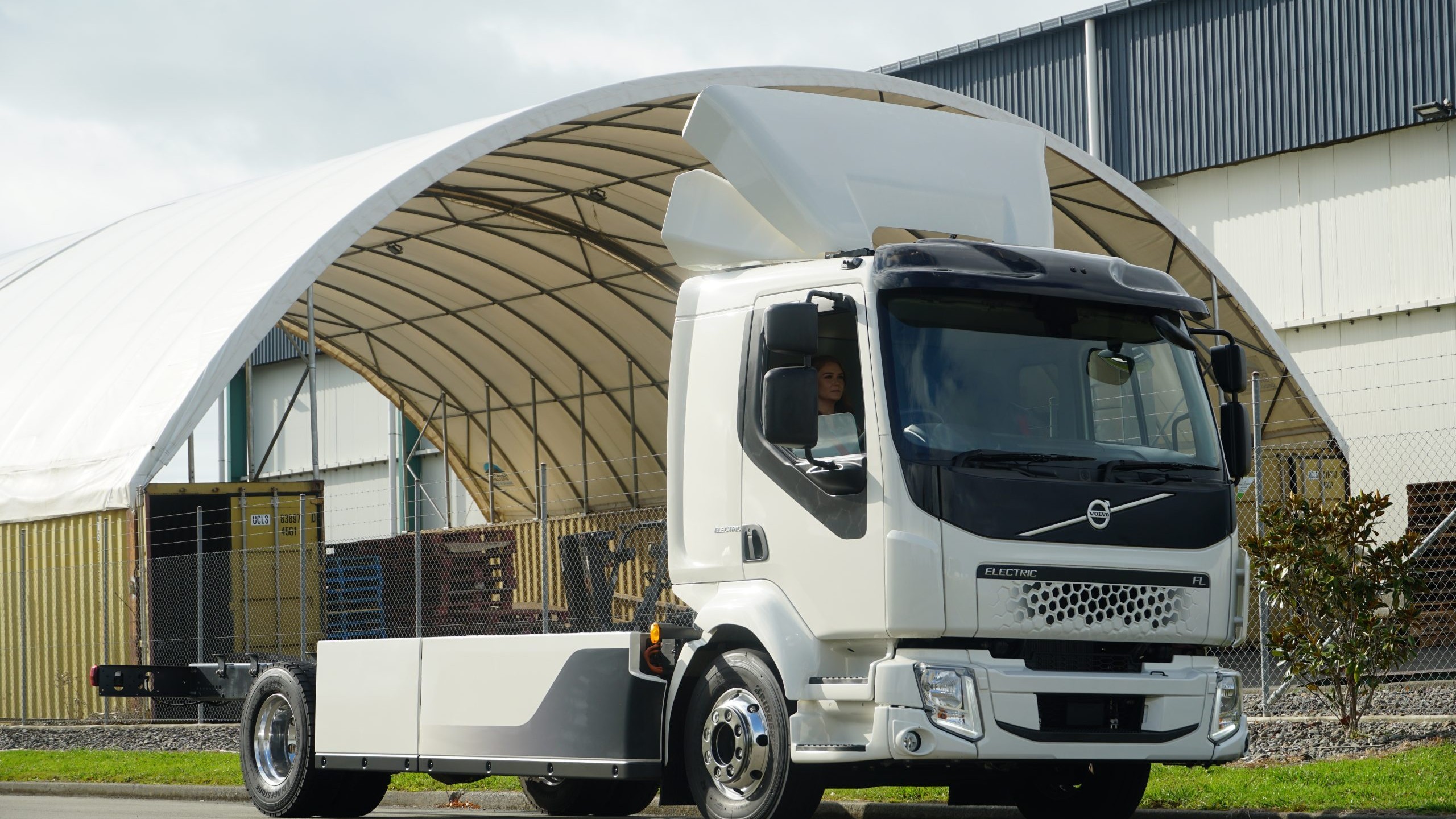Volvo FL electric undergoes NZ performance testing

The Volvo FL electric truck will undergo approval and training tests to check its performance under New Zealand conditions over the next few months.
The 16-tonne fully electric FL truck arrived in New Zealand in April, and has since been put through its paces in a pre-commercial trial on New Zealand’s roads to validate performance data from Volvo headquarters in Sweden.
“The FL is a medium duty 16-tonne truck that’s ideal for metropolitan deliveries,” said MTD general manager Clive Jones. “But heavier duty models are on the horizon.”
“Volvo has signalled its intention to offer the entire Volvo Trucks product range fossil-free by 2040,” he said. “Electric trucks will play a key role in achieving that goal with the New Zealand order book due to open as early as 2024 for heavy duty trucks (up to 44 tonne).”
Jones said delivering against global sustainability and safety targets, as well as on-road performance, is a core focus for the Volvo Trucks brand.
“The next few months will see us go through the approval and training process to test the FL’s performance under New Zealand conditions,” said Jones. “It will also give our on-the-ground technical service and support teams the chance to do some hands-on training, putting our team in a great position facing alternative technologies.”
The Volvo FL electric has a 600V system with four traction batteries, 425Nm of torque and a two-speed gearbox. The batteries have an expected life of eight to ten years. At the point when the long-term value of an electric vehicle battery becomes limited for the trucking industry, there is the opportunity for a second life. Electric vehicle batteries retain 70 to 80% of their original capacity and can be used in applications within construction and residential settings.
According to Edward Jobson,sSenior director strategy at Volvo Trucks Sweden, battery production is 80 to 90% cleaner than diesel production – and there’s an environmental payback of less than a year on commercial vehicles. Environmental payback is classed as the time required to generate as much energy as was consumed during production and lifetime operation of the system.
Meanwhile in New Zealand, the electric truck is going through validation tests to see how different driving styles impact battery range – which European trials have set at 150 to 300km depending on conditions and load. Batteries can fully charge over a six-to-eight-hour period using a standard charging system. However, this accelerates with a 150kW charger that gets a flat battery to 85% in 60 minutes.
The transport industry will get a first chance to view the Volvo FL at the EROAD Fleet Day 2022 on July 20 at the Globox Arena, Claudelands in Hamilton. A track day is planned later in the year and the announcement of a key customer partnership for the commercial phase of the Volvo FL trial is also on the cards – expected in September 2022.





